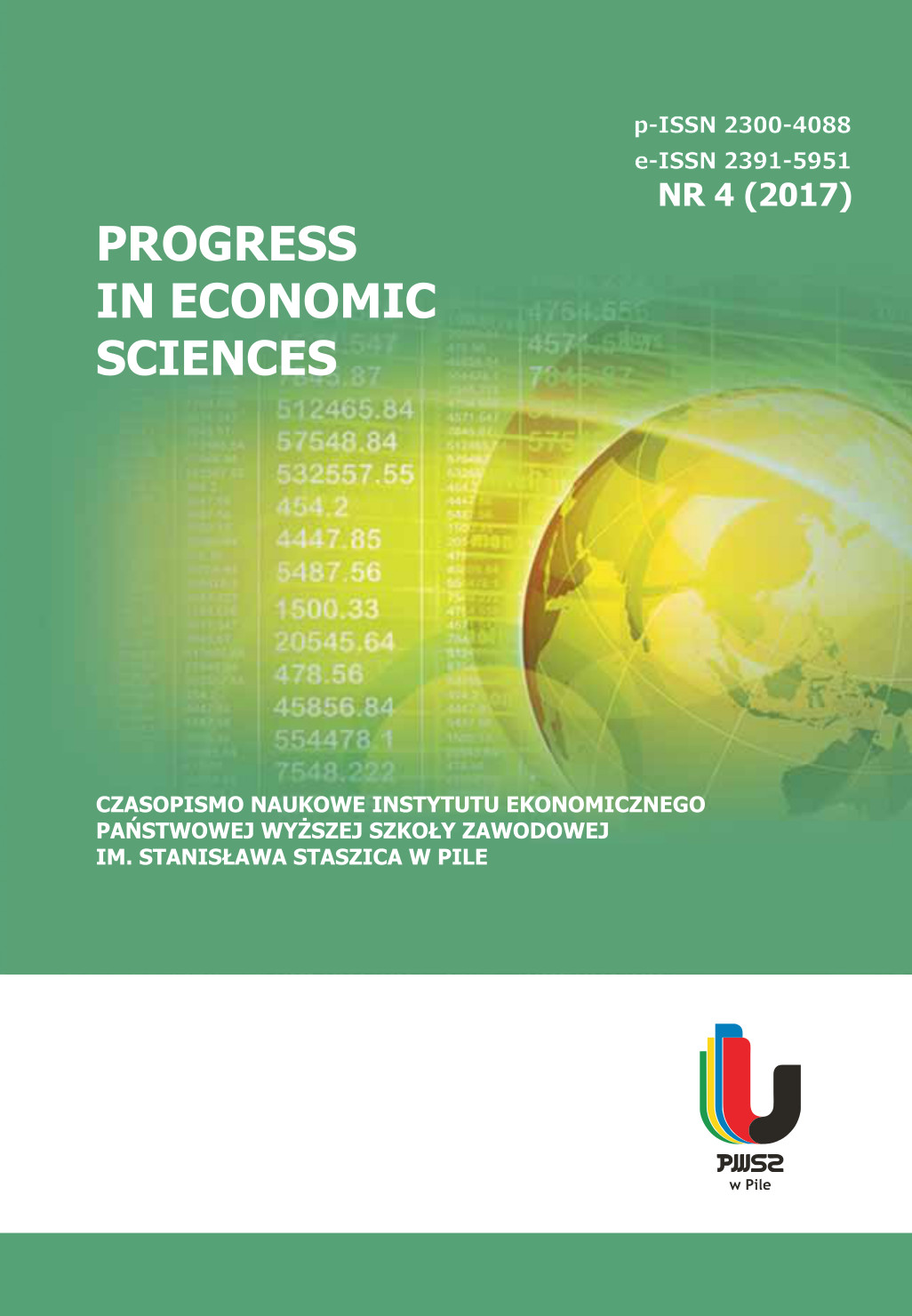Problem wartości w postrzeganiu zrównoważonego rozwoju w międzynarodowym prawie publicznym
Abstrakt
W niniejszym artykule problematyzowane jest normatywne postrzeganie zrównoważonego rozwoju pod kątem wartości. Autorzy zastanawiają się, dlaczego koncepcja ta jest tak trudna do zdefiniowania w praktyce. Wartości w zrównoważonym rozwoju są obserwowane w jego rzeczowych aspektach prawnych, międzynarodowej praktyce administracyjnej oraz w ramach międzynarodowej administracji, jako konteksty postrzegania. Odkrywamy, że ukryte wartości są związane z rozwojem człowieka, prawami człowieka, sprawiedliwą organizacją społeczną oraz odbiciem wiedzy na temat powiązań pomiędzy czynnościami człowieka, środowiskiem, zasobami naturalnymi i wzrostem ekonomicznym. Ponadto zrównoważony rozwój jest kategorią historyczną związaną z potrzebą sprawiedliwości w zakresie alokowania zasobów oraz spełniania podstawowych potrzeb wszystkich ludzi, choć niektóre metody tej globalnej kontekstualizacji destabilizują uczciwość. Stwierdzamy, że zrównoważony rozwój potrzebuje obecnie przedefiniowania w zakresie wartości w oparciu o sprawiedliwość dystrybutywną.
Bibliografia
AYENI V. (2001), The Ombudsman in the Achievement of Administrative Justice and Human Rights in the New Millenium, International Ombudsman Yearbook, 5, pp. 32–53, ISSN: 1387-1846.
BARRAL V. (2012), Sustainable Development in International Law: Nature and Operation of an Evolutive Legal Norm, The European Journal of International Law, 23:2, pp. 377–400, DOI:10.1093/ejil/chs016.
BOYLE A. (2012), Human Rights and the Environment: Where Next?, The European Journal of International Law, 23:32, pp. 613–642, DOI:10.1093/ejil/chs054.
BUNN I. (2012), The Right to Development and the International Economic Law: Legal and Moral Dimensions, Oxford: Hart Publishing, ISBN: 978-1-847-31911-1.
BUNTAINE M. (2016), Giving Aid Effectively: The Politics of Environmental Performance and Selectivity at Multilateral Development Banks, New York: Oxford University Press. ISBN: 978-0-190-46745-6.
CHIMNI B. S. (2010), International Law and Operations of the International Financial Institutions, Bradlow, [in:] International Financial Institutions and International Law, Daniel; Hunter, David (Eds.), Alphen aan den Rijn: Kluwer Law International, pp. 31–62.
CORDONIER S. MARIE-CLAIRE, NEWCOMBE A. (2011), An Integrated Agenda for Sustainable Development in International Investment Law, [in:]Sustainable Development in World Investment Law, Cordonier Segger, Marie-Claire; Gehring, Markus; Newcombe, Andrew Paul (Eds.), Alphen aan den Rijn: Kluwer Law International,
pp. 101–142, ISBN 978-90-411-3166-9.
HUNTER D. (2010), International Law and Public Participation in Policy-making at the International Financial Institutions, [in:]International Financial Institutions and International Law, Bradlow D., Hunter Did, (eds.), Alphen aan den Rijn: Kluwer Law International, pp. 199–238.
LASSWELL H., MCDOUGAL M. (1992), Jurisprudence for a Free Society: Studies in Law, Science and Policy, Vol. 1, New Haven: New Haven Press, ISBN-13: 978-0-792-30989-5.
MARSCHINSKI R., BEHRLE S. (2009), The World Bank: Making the Business Case for the Environment, Managers of Global Change: The Influence of International EnvironmentalBureaucracies, Biermann, Frank; Siebenhüner, Bernd, (eds.), Cambridge/London: MIT Press, pp. 101–142.
SORNARAJAH M. (2015), Resistance and Change in the International Law on Foreign Investment. Cambridge: Cambridge University Press, ISBN 9781107096622.
PARK S. (2010), The World Bank’s Global Safeguard Policy Norm?, [in:] Owning Development: Creating Policy Norms in the IMF and the World Bank, Park, Susan; Vetterlein, Antje (eds.), Cambridge: Cambridge University Press, pр. 181–203.
PEETERS J. (2012), Sustainable Development: A Mission for Social Work? A Normative Approach, Journal of Social Intervention: Theory and Practice, 21:2, pp. 5–22. DOI: DOI:10.18352/jsi.306.
QERIMI Q. (2012), Development in International Law: A Policy-Oriented Inquiry, Leiden: Martinus Nijhoff Publishers, ISSN: 1876-9861.
REIF L. (2013), The Ombudsman, Good Governance and the International Human Rights System, Dorderecht: Springer, ISBN-10: 9004139036.
SACHS J. (2015), The Age of Sustainable Development, New York: Columbia University Press, ISBN: 9780231173155.
SANDS P., PEEL J., FABRA A., MACKENZIE R. (2012), Principles of International Environmental Law, 3rd edition, Cambridge/New York: Cambridge University Press, ISBN: 978-0-521-14093-5.
SEN A. (1999), Development as Freedom, Oxford: Oxford University Press, ISBN: 0-385-72027-0.
SOLOMON M. (2013), From NEIO to Now and the Unfinishable Story of Economic Justice, International and Comparative Law Quarterly, 62:1, pp. 31–54, DOI:10.1017/S0020589312000590.
STEVANOVIĆ M., DJURDJEVIĆ D. (2015), „National Security Challenges of the International Financial System”, Conference on information security – BISEC 2015, Proceedings, Mehić Nedžad (ed.), Beograd: Univerzitet Metroplitan, pр. 14–21. ISBN 978-86-89755-05-3, COBISS.SR-ID 215773708.
WOLFENSOHN J. (1997), Foreward, [in:] World Bank, World Development Report 1997:The State in a Changing World, New York: Oxford University Press.
YOSHIRO M. (2002), Some Аspects of the Рrinciple of „Common but Differentiated Responsibilities”, International Environmental Agreements: Politics, Law and Economics, 2:2/2002, pp. 151–154, ISSN: 1567-9764
Artykuły w Progress in Economic Sciences w wersji drukowanej i internetowej publikowane są w oparciu o zasady Open Access na licencji CC - Creative Commons Uznanie autorstwa, autorzy mogą dowolnie dysponować tekstami w wersji opublikowanej w czasopiśmie.


